
views
- It might seem like bad things keep happening because you’re surrounded by people who only notice the negatives or you have unrealistic expectations for yourself.
- Start doing proactive things each day to prevent stress or mistakes from happening, such as starting a project early to make sure you submit it on time.
- When something bad happens, accept the situation for what it is, then focus on good things like your friends and family to create a more positive mindset.
Reasons Why Bad Things Are Happening

You may be experiencing something bad amongst other good things. It can be easy to believe that bad things only happen to bad people or that you deserve the bad things happening in your life. However, there’s no evidence that supports such claims. A mix of good and bad things happens to every single person. It may just be that you’re currently experiencing more bad things than good.

You might not have formed good, proactive habits. While some things in life may be out of your control, there are things you can do in your daily life to prevent bad things from happening. When you form good habits that allow you to be more proactive, you’re able to more easily combat daily stressors and prevent small mistakes from happening. If you haven’t formed these types of habits yet, these stressors and mistakes are more likely to happen. For example, you might be determined to pass a test, but you haven’t formed good study habits. So, when test time comes, you might end up feeling really stressed and even get a bad grade. Or, you might recognize that a certain work project is really important, but you have difficulty managing your time. Because of this, you might get reprimanded by your boss for not getting things in on time.
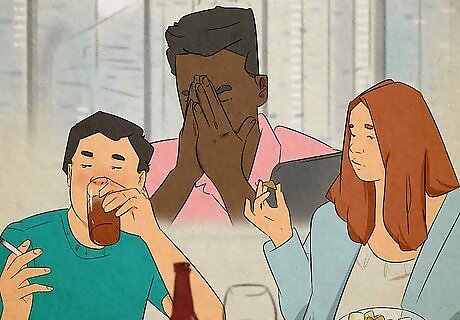
You may have fallen into unhealthy habits. Falling into bad habits is different from not having good habits. A lack of good habits can make it difficult to complete tasks, but unhealthy habits can more severely affect your health, relationships, and lifestyle. For example, if you’re suffering from any type of addiction, your health, relationships with others, and finances can greatly suffer. Other unhealthy habits include things like drug and alcohol use, gambling, eating unhealthily, and forming bad sleeping habits. You may have also formed unhealthy social habits, such as isolating yourself from friends and family or spending too much time on social media. These habits can lead to “bad” things happening, such as feeling lonely or depressed.
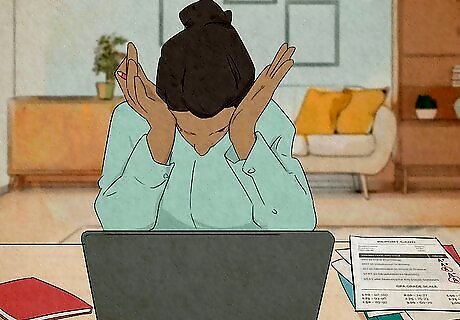
You could have unrealistic expectations for yourself. When you set goals for yourself that simply aren’t attainable given your resources and personal situation, it often leads to feelings of disappointment and like nothing is going right for you. For example, if you expect to get a promotion within the first year of working, it might feel like only bad things are happening when you don’t get selected. It might also be that other people around you have very high and unrealistic expectations for you. If you aren’t able to meet their expectations, their disappointment can make you feel like only negative things are happening to you. Or, your current lifestyle and situation may not line up with your aspirations. For example, if you’re living in a place that you don’t like, it may feel like things aren’t going right.

You may be surrounded by negative people. Your outlook on and attitude toward life is greatly influenced by the people around you. So when your friends, family, or partner only focus on the bad things happening, it can be easy for you to slip into a similar mindset. If they only point out the negatives, you might find yourself also only focusing on the bad instead of the good. Or, it may be that the people in your life are influencing you to do things that bring about negative consequences. For example, if you have friends who pressure you to go out drinking regularly, your work or studies may suffer.

You might have a hard time recognizing the positives. You may be unconsciously distorting your thoughts by doing mental filtering, which is when you only focus on the negatives and disregard the positives. For example, if your boss compliments you but also gives you constructive feedback during a performance review, you might only focus on the negatives and tell yourself you’re doing a bad job. Or, even though you might’ve received a lot of praise for a presentation you did, you might only focus on the mistakes you made and tell yourself that it was a bad presentation.
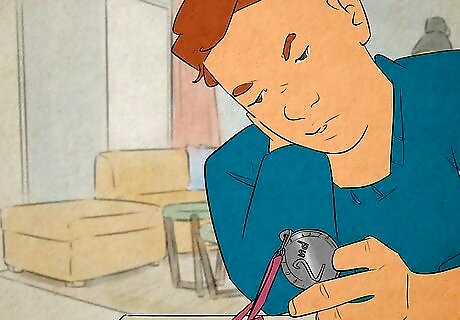
You could have an “all or nothing” mindset. When you have this kind of mindset, you might tell yourself that you’ve failed when you don’t achieve perfect results. For example, if you got a B on a test instead of an A, you might tell yourself that you’ve flunked. Or, you didn’t get the promotion you wanted, so you tell yourself that you’re terrible at your job. With this type of thinking, there’s no option between good and bad, and it can be easier for you to fixate on the negatives rather than appreciate the positives in life. Another example would be if you recently argued with a friend. Despite being friends for a long time, you might convince yourself that they don’t want to be friends with you anymore after your argument.

You might be unconsciously engaging in self-sabotaging behaviors. It’s not unheard of for some people to subconsciously seek out bad situations simply because that’s what’s familiar to them. This might be especially true if you’ve experienced some trauma in your past. For example, if you grew up in a toxic household, you might find yourself seeking out toxic romantic partners because that’s what’s familiar to you. Or, if you had an overly critical parent, you might unconsciously look for a work environment that’s equally harsh because it’s what you’re used to.
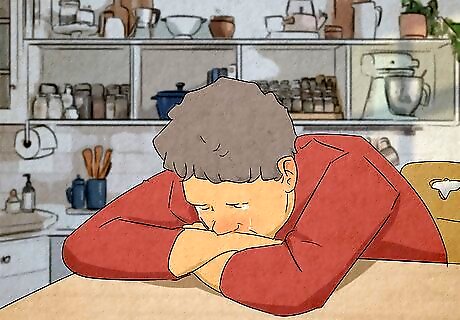
You may be dealing with a mental health disorder. Unfortunately, the feeling that only bad things are happening to you could be a result of a more serious mental health disorder like depression. If you also experience feelings of hopelessness and sadness, reach out to a licensed psychologist or medical professional to get the help you need. Other symptoms of depression include: Irritability or frustration over small matters Loss of interest in things you once enjoyed Lack of energy Anxiety and restlessness Feelings of worthlessness or guilt
Coping When Bad Things Happen

Accept the situation for what it is. When faced with stress or negative situations, some people try to simply ignore it in order to protect themselves. However, this can just end up prolonging the stress and worry you feel from the situation. To help yourself get through tough times, acknowledge the bad thing that happened and accept it for what it is. Tell yourself, “This happened today. There’s nothing I can do to change the past.” Also acknowledge the things that are out of your control. This can help you to rationalize your thoughts and view the situation from a more realistic perspective. For example, if someone was rude to you, remind yourself that other people’s feelings and thoughts toward you aren’t in your control. Or, if a bad storm damaged your house, remind yourself that you can’t control the weather.
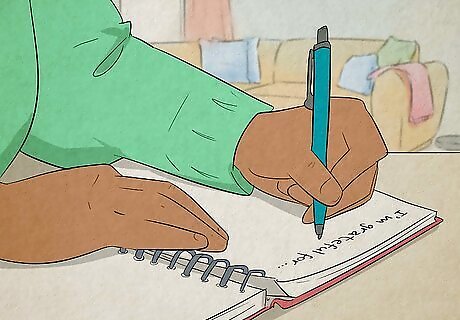
Focus on the positives. When something bad happens, it can be easy to get swept up in negative thoughts and be overly harsh toward yourself. However, remember that there are also plenty of good things that are happening in your life. To pull yourself out of a more negative mindset, focus on these positives and remind yourself that no bad thing can last forever. Practice gratitude to help yourself focus on the good things in your life. One idea is to start a gratitude journal where you write down 3-5 things you’re grateful for each day. Some positive things you might focus on include your friends, family, pets, job, or things that bring you happiness, like your hobbies or interests.

Reach out to friends and family for support. There’s nothing saying that you need to deal with bad things and negative circumstances by yourself. Talk to your friends, family, or partner when something bad happens, and be honest with them about how you’re feeling. Sometimes just talking through a situation can help shift your perspective, and you might also receive helpful advice about how to deal with it. Withdrawing during tough times can just lead to you feeling lonely and isolated. You’re not a burden for reaching out to loved ones, and they’ll likely be more than willing to help you.

Take care of your physical and mental health. When something bad happens, it can be easy to hyperfocus on the situation and neglect taking care of yourself. However, you might be able to focus better and feel more energized to deal with the situation once your needs are met. In addition, managing your health can help prevent some bad things from happening in the future, such as health complications. For your physical health, make sure you’re eating healthy, getting adequate sleep each night, and exercising to stay fit and healthy. For your mental health, make time for your hobbies, spend time with friends, and do activities to relax, such as reading or going for a walk.

Be kind and forgiving toward yourself. If something bad happens, avoid being too harsh or critical toward yourself. Instead, remind yourself that you’re only human and that both good and bad things are bound to happen. Show yourself compassion and, if you made a mistake, forgive yourself and think about how you can change moving forward. Use positive affirmations to speak to yourself kindly. Say things like, “I did well,” “I’m strong,” and “I can get through this.”

Talk to a therapist if you need professional support. If you’re having trouble finding the positives or coping when bad things happen, it might be helpful to speak to a therapist. They can give you a safe space to open up about what you’re going through and provide exercises to help you cope with the situation.
Preventing Bad Things From Happening

Be proactive about the things you can control. There are plenty of actions you can take every single day to prevent stress and avoid mistakes. Identify the changes you can make to your daily routine and make a habit of doing these things every day. If you think something might go wrong, be proactive and prepare early to avoid any negative outcomes. For example: Make sure you always have more than half a tank of gas to avoid running out while driving. Start a project early to avoid having to rush when the deadline approaches. Open up a savings account to ease stress about your finances. Prepare for an interview in advance and practice answering typical interview questions to give yourself the best chance at landing a job. Set multiple alarms to make sure you wake up on time to get to work.
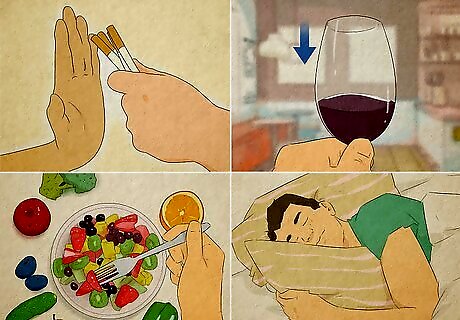
Break your bad habits. The first step in breaking unhealthy habits is to take responsibility for your actions. Acknowledge your unhealthy behaviors and be honest with yourself about how they’re negatively affecting your life. Avoid situations that can make it easier to indulge in this bad habit and replace it with a healthy habit instead. For example, if you have a habit of eating unhealthily, get rid of all junk food from your pantry and replace it only with healthy snacks. Or, if you drink often, decline your friend’s invitation to go out to a bar on the weekend. A healthy habit to focus on instead might be something like staying hydrated with water throughout the day. Get others to help you in your efforts to break bad habits. Recruit friends and family to monitor your progress and keep you in check if you start to slip back into old habits.
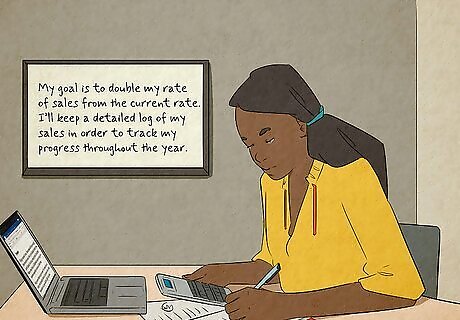
Set goals that you know you can achieve. Create goals that are specific and actionable. These types of goals can make it easier to notice your progress and help raise your self-esteem. In addition, make sure your goals are relevant to your wants, needs, and interests and fit your personal situation. One idea is to set SMART goals, which are specific, measurable, attainable, relevant, and time-bound. For example: Specific: I’ll learn new sales techniques to improve my performance at work. Measurable: My goal is to double my rate of sales from the current rate. I’ll keep a detailed log of my sales in order to track my progress throughout the year. Attainable: I’ve been working in sales for 3 years and so have a solid foundation. My company is also offering a mentor program and extra trainings I can take advantage of. Relevant: I want to feel more confident in my job and improve my skills. This will also make me a better candidate for a promotion. Time-bound: I’ll give myself 6 months to start seeing results. There’s a training next Monday that I’ll attend and put my new skills to use immediately after.

Surround yourself with positive people. When you have encouraging, supportive, and loving people around you, it can feel a lot easier to focus on the positives. Not only that, but when bad things do happen, your mind might be put at ease knowing that you have a solid support system ready to back you up. Reach out to friends and make plans to hang out whenever you can. Stay in touch with your family and talk to them throughout the week. Don’t be afraid to ask loved ones for advice or open up to them when things seem hard. Getting things out in the open right away might help prevent situations from becoming worse.

Reflect on your mistakes and learn from them. It might seem like bad things keep happening to you because you keep repeating the same mistakes. We all make mistakes, but the important thing is that we learn from them instead of ruminating on them. When something goes wrong, stop and analyze the situation. Ask yourself, “What caused me to make this mistake?” and “What can I change for next time?” Be sure to also point out the things you did well. It’s highly unlikely that you did everything wrong, and there might be some things that worked to remember for next time. Reach out to others for help in addressing areas you need to work on. For example, ask your boss for more detailed feedback to avoid future mistakes.



















Comments
0 comment